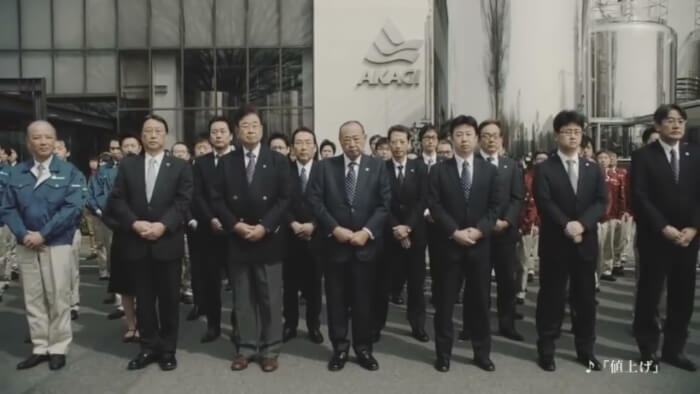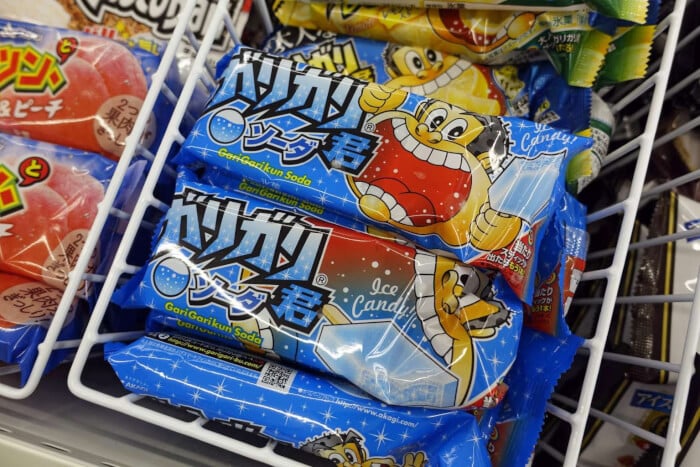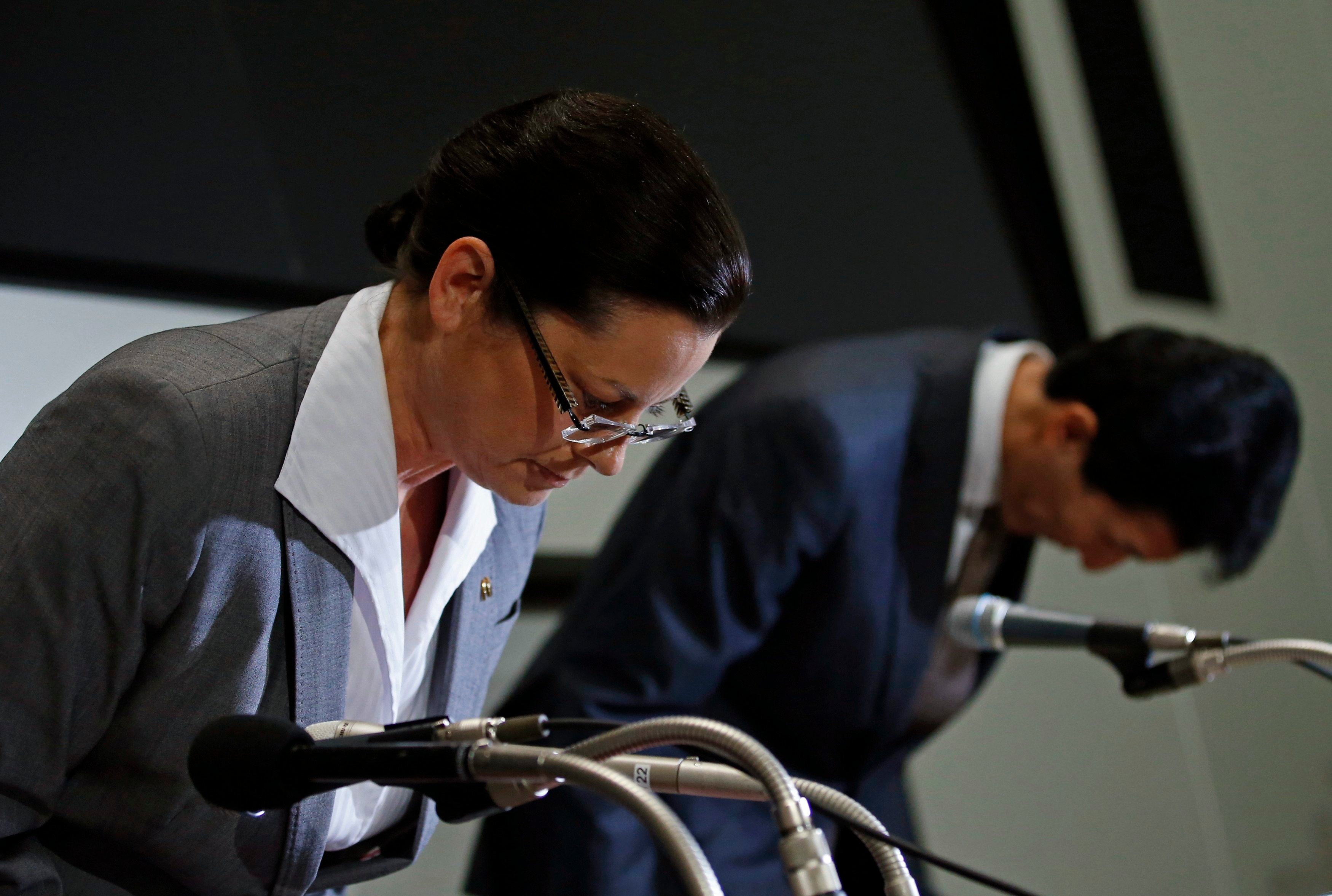The Apology Video From An Ice Cream Company For Increasing Price By $0.09 Is Worth Thousand Times More Than Any Of Its Expensive Marketing Campaign
It is normal to increase prices of products; however; the Dessert Firm Akagi Nyugyo posted a video in which its CEO and staffs dressed neatly, bowing and apologizing to customers for increasing the price by 9 cents after 25 years.
At the beginning of April 2016, Akagi company posted a short video. Although it wasn’t a promotion video, it has attracted the attention of millions. Its popularity even crossed borders and spread to neighboring countries.
Chinese social networks, from Youku to Weibo were spreading this video, which featured about 100 people, including its chairman, also its CEO, and other employees at the headquarters in Fukaya city.
In the video, the mentioned people were neatly dressed, bowing together to express their apology as they had to increase the price of the Garigari-kun bars from $0.53 to $0.62. The Garigari-kun line was launched in 1981 for $0.44. It has been repriced at $0.53 since 1991, and remained unchanged for 25 years, despite economy’s ups and downs, until now, together with a thorough apology video.
At the end of the video there was a line that read: “We have worked hard for 25 years; however, now we have to increase the price. A soda-flavored Garigari-kun ice cream will have its price increased from $0.53 to $0.62.”
“It’s normal to increase price, but they still apologize even though the rise isn’t significant. Don’t worry, we’ll still buy your products even if it is $0.88,” one YouTube user commented.
Another wrote, “Never tried their ice cream before, but after this video I’m gonna. Their apology shows respect for customers. Please support this Japanese company.”
"I believe they’ve done good marketing. Even though they raised the price, they still had a good reputation without enraging customers; instead, they showed their supports towards the company. Furthermore, they attracted more customers thanks to the video. What a strategy!” another shared.
For Japanese, apologies are used frequently. Even an apology can sometimes be substituted for a thank you. To them, this is an act of showing minimal courtesy and politeness in cultural communication. Apologizing is not necessarily admitting a mistake, but also showing a progressive attitude and a sense of responsibility.
Mrs. Sarah said McDonald's Japan has completely stopped cooperating with Shanghai Husi to turn to 2 meat suppliers from Thailand. The scandal caused McDonald's sales to continuously decline. To reassure customers, McDonald's Japan has publicly disclosed information about the source of ingredients and promised not to let such an incident happen again.
One thing that some viewers noticed, however, was Mrs. Sarah's apology. Her resolute eyes when apologizing (a sign of sincerity in the West) seems to have the negative effect on some Japanese, leaving them with no sense of remorse or sincerity.
H/T: The Straits Times
Akari Nyugyo’s apology video
 Source: Youtube
Source: Youtube
At the beginning of April 2016, Akagi company posted a short video. Although it wasn’t a promotion video, it has attracted the attention of millions. Its popularity even crossed borders and spread to neighboring countries.
Chinese social networks, from Youku to Weibo were spreading this video, which featured about 100 people, including its chairman, also its CEO, and other employees at the headquarters in Fukaya city.
In the video, the mentioned people were neatly dressed, bowing together to express their apology as they had to increase the price of the Garigari-kun bars from $0.53 to $0.62. The Garigari-kun line was launched in 1981 for $0.44. It has been repriced at $0.53 since 1991, and remained unchanged for 25 years, despite economy’s ups and downs, until now, together with a thorough apology video.
At the end of the video there was a line that read: “We have worked hard for 25 years; however, now we have to increase the price. A soda-flavored Garigari-kun ice cream will have its price increased from $0.53 to $0.62.”
The popularity spread
 Source: The Strait Times
Source: The Strait Times
“It’s normal to increase price, but they still apologize even though the rise isn’t significant. Don’t worry, we’ll still buy your products even if it is $0.88,” one YouTube user commented.
Another wrote, “Never tried their ice cream before, but after this video I’m gonna. Their apology shows respect for customers. Please support this Japanese company.”
"I believe they’ve done good marketing. Even though they raised the price, they still had a good reputation without enraging customers; instead, they showed their supports towards the company. Furthermore, they attracted more customers thanks to the video. What a strategy!” another shared.
For Japanese, apologies are used frequently. Even an apology can sometimes be substituted for a thank you. To them, this is an act of showing minimal courtesy and politeness in cultural communication. Apologizing is not necessarily admitting a mistake, but also showing a progressive attitude and a sense of responsibility.
The previous instance
 Source: The Japan Times
Source: The Japan Times
Mrs. Sarah said McDonald's Japan has completely stopped cooperating with Shanghai Husi to turn to 2 meat suppliers from Thailand. The scandal caused McDonald's sales to continuously decline. To reassure customers, McDonald's Japan has publicly disclosed information about the source of ingredients and promised not to let such an incident happen again.
One thing that some viewers noticed, however, was Mrs. Sarah's apology. Her resolute eyes when apologizing (a sign of sincerity in the West) seems to have the negative effect on some Japanese, leaving them with no sense of remorse or sincerity.
H/T: The Straits Times
Share this article
Advertisement